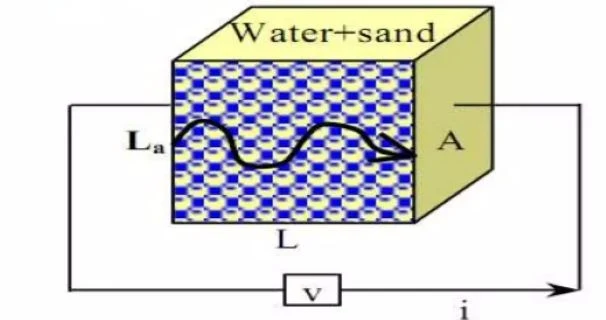The Electrical Properties of Petroleum Reservoirs
Unlocking the Current: Electrical Properties in Reservoir Rocks
 |
| Understanding the Electrical Properties of Petroleum Reservoir |
Are you fascinated by the complexities of petroleum reservoirs and the rock formations that hold valuable resources? If so, delve into the world of electrical properties of petroleum reservoirs rock with the "Petroleum Knowledge Fields" YouTube channel. Our channel offers a comprehensive exploration of the electrical characteristics of reservoir rocks, providing valuable insights for industry professionals, students, and enthusiasts alike.
The cornerstone of our content is a detailed lecture on the electrical properties of petroleum reservoirs rock. This informative video delves into the definition of resistivity and its significance in evaluating the rock's composition and potential for petroleum extraction. By elucidating the resistivity index and its implications for reservoir assessment, the lecture equips viewers with essential knowledge for understanding and analyzing petroleum reservoirs.
One of the key concepts explored in the lecture is the relationship between rock resistivity and its dependence on various factors. Viewers will gain a nuanced understanding of how resistivity is influenced by the composition, structure, and fluid content of the rock, shedding light on the intricate interplay of geological elements in petroleum reservoirs.
Furthermore, the video delves into the conductive and non-conductive properties of electrical currents in porous media, offering a comprehensive overview of the factors that influence the flow of electricity in reservoir rocks. By exploring the concept of tortuosity and its impact on electrical conductivity, the lecture provides a holistic understanding of the complexities inherent in evaluating the electrical properties of petroleum reservoir rocks.
At "Petroleum Knowledge Fields," we are committed to delivering in-depth and engaging content that caters to both seasoned professionals and those new to the field. Whether you are an industry expert looking to deepen your understanding of reservoir evaluation or a student seeking to grasp the fundamental concepts of petroleum geology, our channel offers invaluable resources to expand your knowledge base.
In addition to the educational lecture, our YouTube channel features a diverse range of supplementary content, including tutorials, case studies, and interviews with industry experts. These resources serve to enrich the viewer's learning experience, providing real-world applications and insights into the practical implications of the electrical properties of petroleum reservoirs rock.
By subscribing to the "Petroleum Knowledge Fields" YouTube channel, you gain access to a wealth of knowledge and expertise in the field of petroleum geology. Stay updated with the latest industry trends, research findings, and technological advancements that shape the way we understand and harness the potential of petroleum reservoirs.
The "Petroleum Knowledge Fields" YouTube channel offers a compelling exploration of the electrical properties of petroleum reservoirs rock, providing a valuable resource for professionals and enthusiasts seeking to deepen their understanding of this complex and dynamic field. Don't miss out on the opportunity to expand your knowledge and expertise – subscribe to our channel today and embark on a journey of discovery into the fascinating world of petroleum reservoir geology.
Unlock the secrets of petroleum reservoirs rock and gain a comprehensive understanding of their electrical properties by watching our insightful lecture and exploring our diverse range of content. Join the "Petroleum Knowledge Fields" community and elevate your expertise in petroleum geology today.
UNLOCKING THE MYSTERIES OF ROCK ELECTRICAL PROPERTIES
THE BASICS OF ROCK ELECTRICAL CHARACTERISTICS
UNDERSTANDING RESISTIVITY
- R stands for resistance in ohms (Ω)
- A is the cross-sectional area in square meters (m²)
- L refers to the length in meters (m)


Comments